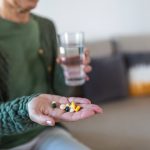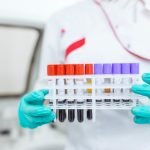Dietary antioxidants can speed up cancer growth and metastasis, study finds
We often hear that antioxidants like vitamin C are good for our health. Many people take them as supplements, believing they fight diseases like...
Scientists find new hope for brain cancer treatment
Brain cancer is a terrible illness that doctors and scientists have struggled to treat effectively. One particularly aggressive type of brain cancer is called...
Common cholesterol-lower drugs can prevent colon cancer in these people, study finds
A recent study has given us a promising hint that statins, commonly used to lower cholesterol, might have another important benefit.
They could help protect...
Scientists find better ways to improve colon cancer treatment
The Challenge: Immunotherapy and Colorectal Cancer
Immunotherapy has revolutionized the treatment of various cancers, including colorectal cancer. However, not every patient responds favorably to this...
AI speeds up colorectal cancer diagnosis and treatment, study finds
A Big Leap in Cancer Diagnosis
Colorectal cancer is the second-leading cause of cancer-related deaths worldwide. But what if artificial intelligence (AI) could help doctors...
AI-driven approach revolutionizes breast cancer risk assessment, study finds
A study led by Andreas D. Lauritzen, Ph.D., from the University of Copenhagen, indicates that combining artificial intelligence (AI) systems can significantly improve the...
A high blood pressure drug may help battle brain cancer
Glioblastoma is a fast-growing type of brain cancer that is very hard to treat. Doctors have a new set of drugs called immune checkpoint...
PSA levels after treatment may not predict survival in prostate cancer
Biochemical recurrence after radiotherapy has long been considered a possible indicator of long-term survival in patients with localized prostate cancer.
However, a new study led...
New screening technique may improve treatment for common brain cancer
Researchers from The Institute of Cancer Research have developed a new molecular imaging technique that could change the way glioblastomas, a fast-growing and common...
Mindfulness and other therapies recommended for managing anxiety and depression in cancer patients
New Guidelines Offer Hope for Better Mental Health in Cancer Care
Two leading oncology organizations, the Society for Integrative Oncology (SIO) and the American Society...










